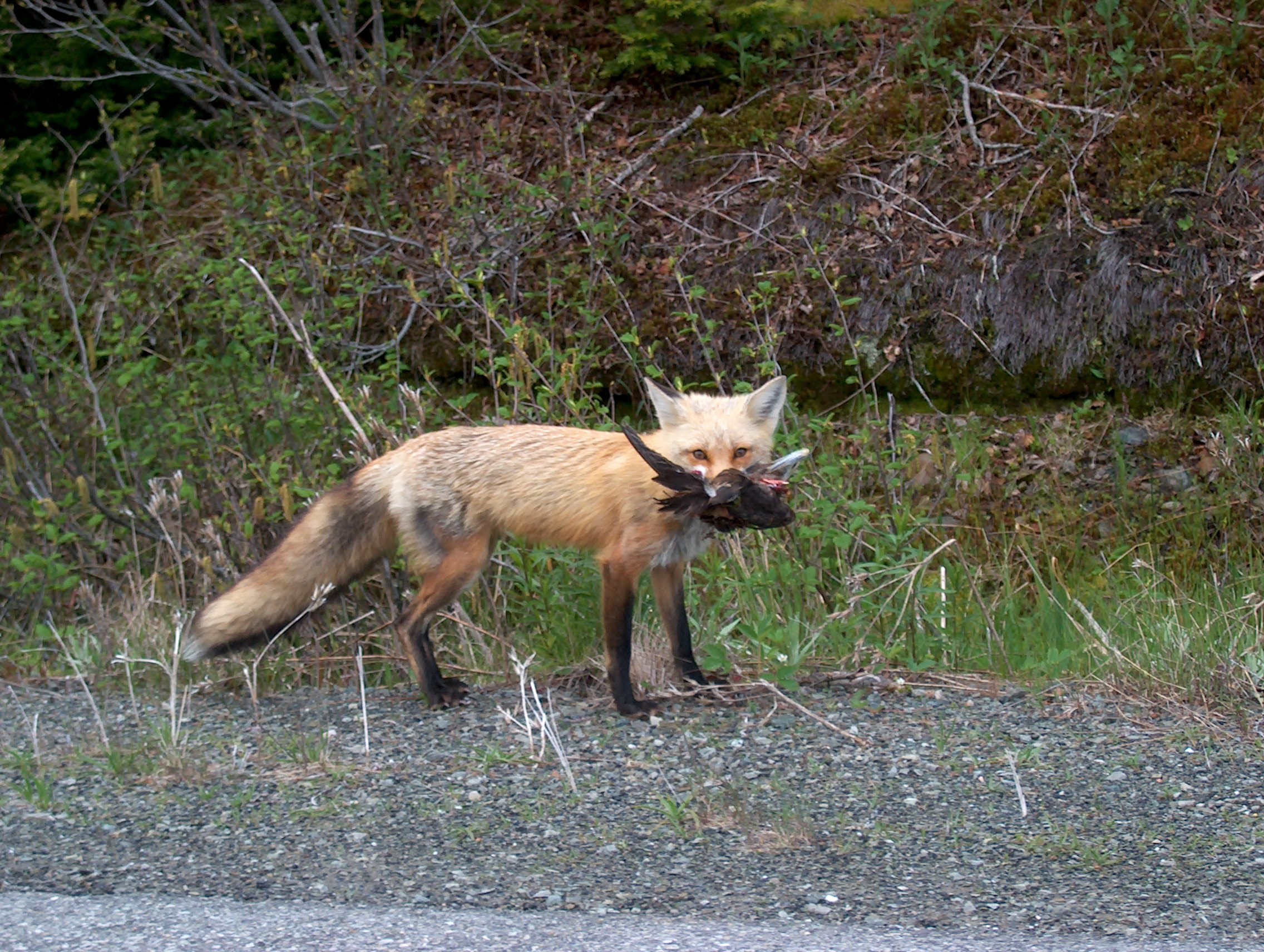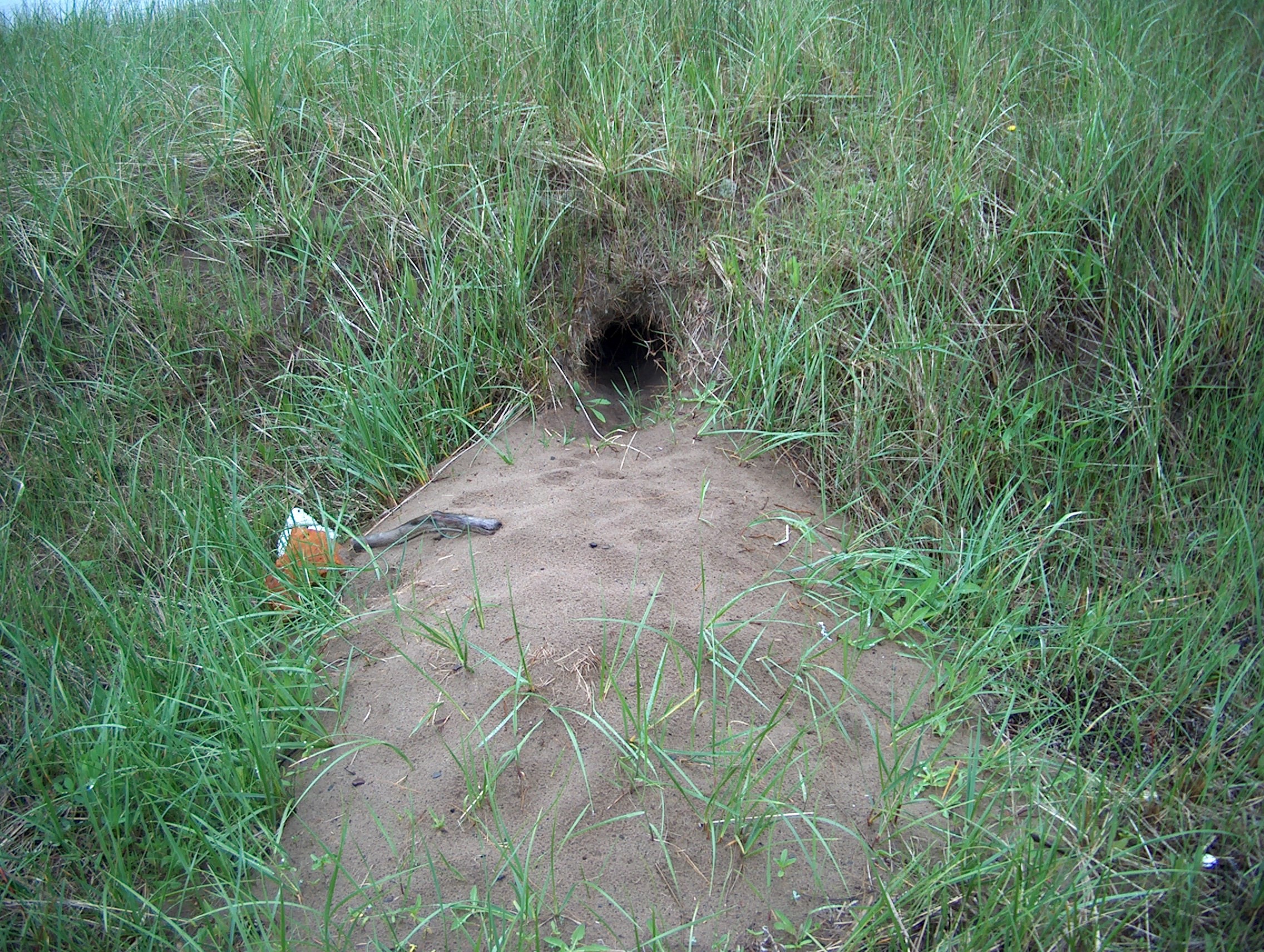
Foxes in your neighbourhood


Red Foxes are widely distributed across North America and are native to Nova Scotia. They are very curious by nature and successfully inhabit both rural and urban areas. They prefer wild foods like insects, wild fruit, small birds, eggs, and small mammals, such as mice and voles. Hungry foxes will scavenge for food wherever they can find it, including residential or developed areas associated with people. As a result, foxes will become comfortable living within sight of people. Sources of food may include unsecured garbage, pet foods, fallen fruit, compost, spillage from backyard bird feeders, waste food around retail or commercial businesses and handouts from concerned or curious citizens. Free-range chickens or small pets such as outdoor cats may also become food for foxes.


Each spring, female foxes produce their litters of young in dens. Fox dens can be located in sand dunes, dirt banks, or under stumps, brush piles, or outbuildings. When foxes den in or near residential communities, homeowners may become concerned. Increased sightings of foxes occur during spring and early summer because of increased energy demands to provide food for the young. Hungry foxes are more likely to approach people looking for handouts and can be quickly conditioned to feeding. Foxes dependent on human foods are often considered a nuisance.
Foxes are easily habituated to humans, and when they are actively fed by people, their numbers can increase to exceed the carrying capacity of the landscape. This may encourage foxes to den closer to artificial food sources which continues the cycle of dependency on human food. During periods of high population, foxes are also more susceptible to fatal diseases like mange, and rabies. Fatal diseases are nature's way of controlling population levels and quickly spread when fox numbers increase.
How to keep foxes wild
Do not feed foxes!
Do not approach foxes.
Keep your property free of all unsecured garbage, especially if it contains food waste.
Clean up spilled bird seed around bird feeders.
Only feed birds during winter.
Do not feed your pets outdoors.
Keep compost secured from access by foxes or other wildlife.
Clean up or secure any outbuilding before it can be used as a den site.
Keep small pets indoors or on a leash.
Most importantly, encourage your children and your neighbours to do the same. Your assistance will help to avoid problems with foxes as well as other wildlife.
The red fox is protected under the Wildlife Act in Nova Scotia and may not be trapped or killed except during the legal trapping or hunting seasons. Removal of nuisance foxes from an area is not a practical solution as neighboring foxes will immediately move into this vacant habitat.
Nova Scotia Department of Lands and Forestry should be contacted where there is a demonstrated concern for human safety, destruction of property or a diseased or injured animal. If this occurs, contact your local office at Lands and Forestry, or call 1-800-565-2224 after hours.